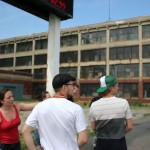 With property values at record lows and vacant abandoned infrastructure all around, Detroit has started to capture the imagination of a generation of young adults flocking to the Motor City with the intent of building a new vision of the city in the 21st century. Among those are participants in the Green Economy Leadership Training (GELT) program.
With property values at record lows and vacant abandoned infrastructure all around, Detroit has started to capture the imagination of a generation of young adults flocking to the Motor City with the intent of building a new vision of the city in the 21st century. Among those are participants in the Green Economy Leadership Training (GELT) program.
For those unfamiliar with GELT, watch this video from 2010. This chick rocks!!!
Now here we are in 2012. 100 years ago Detroit was on the cutting edge of the industrial revolution, and was one of the most important cities in the world. Flash forward to 2011, Detroit is once again one of the most important cities in the world as a microcosm of a broken economy that is quickly leaving behind the working class and a growing disparity between rich and poor.
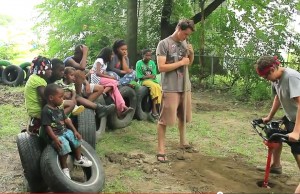 In newspapers and on TV, Detroit is depicted as the most dangerous city in America, backed by recent reports showing the highest murder rates in the country. Journalists have come from all over the world to document the decay, creating a new class of journalism labeled, “ruin porn.”
In newspapers and on TV, Detroit is depicted as the most dangerous city in America, backed by recent reports showing the highest murder rates in the country. Journalists have come from all over the world to document the decay, creating a new class of journalism labeled, “ruin porn.”
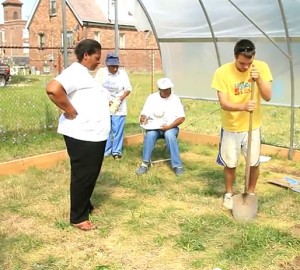 But underneath the stories the media portrays and the pictures many journalists project, a new generation of Detroit is rising. Artists, activists, organizers and entrepreneurs from all walks of life are descending on the city to take advantage of the wide open spaces, massive abandoned factories and warehouses and projecting a new vision for the 21st century American city.
But underneath the stories the media portrays and the pictures many journalists project, a new generation of Detroit is rising. Artists, activists, organizers and entrepreneurs from all walks of life are descending on the city to take advantage of the wide open spaces, massive abandoned factories and warehouses and projecting a new vision for the 21st century American city.
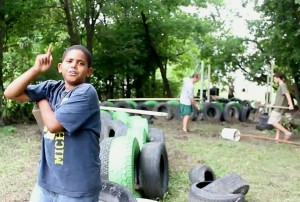 The Green Economy Leadership Training program is on the forefront of this movement. The 2011 GELT program wrapped up last August, completing its second year of transformative action in Highland Park, Michigan, in the shadows of Henry Ford’s iconic Model T plant, the first automobile industrial assembly plant.
The Green Economy Leadership Training program is on the forefront of this movement. The 2011 GELT program wrapped up last August, completing its second year of transformative action in Highland Park, Michigan, in the shadows of Henry Ford’s iconic Model T plant, the first automobile industrial assembly plant.
Over 25 people participated in the 2011 GELT, ranging from grandmothers born and raised in Detroit, to high school students from local schools, to college students and recent grads from all over the country.
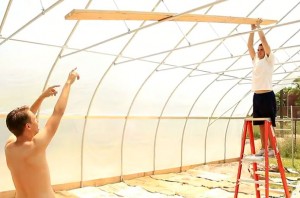 Participants went through over 250 hours of trainings in urban agriculture, solar energy, energy efficiency, entrepreneurship and community wealth building. In addition to the trainings, participants spent most of their time this summer working in one of four project areas: solar energy, urban agriculture, waste manufacturing and deconstruction.
Participants went through over 250 hours of trainings in urban agriculture, solar energy, energy efficiency, entrepreneurship and community wealth building. In addition to the trainings, participants spent most of their time this summer working in one of four project areas: solar energy, urban agriculture, waste manufacturing and deconstruction.
Participants in these projects took the lead on installing solar panels, building a 4-season greenhouse, remodeling an abandoned house and building a playground out of recycled tires for the neighborhood kids. Participants also received certifications in permaculture and the “NAPCEP” entry level solar photovoltaic.
So what’s next? GELT 2012, of course, and YOU are invited to apply!
We encourage you, or anyone you know, to apply for the third Green Economy Leadership Training from June 11-August 18, 2012.
Want to participate in community-led projects focused on developing local green economy resources? Interested in learning to organize social entrepreneurship ventures? Between the ages of 18 and 99? Want to spend the summer in Highland Park, MI and meet like-minded people from across the country working for social justice while working with the local community? Then apply to GELT today!
To apply for GELT 2012, click here. Application deadline: April 10th
If you cannot attend, you can still support the GELT project and sponsor a GELT summer fellow. Consider making a special gift today.
Watch the GELT video “We Will Carry the Fire”:

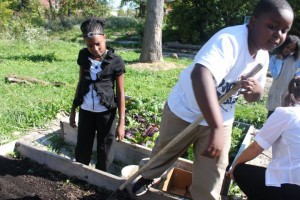
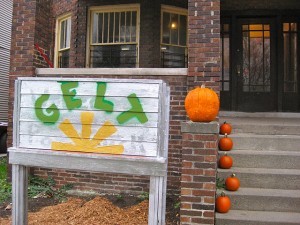
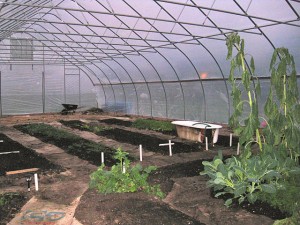
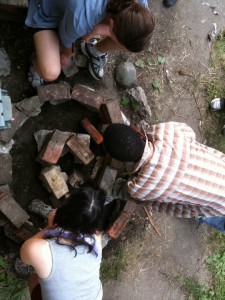
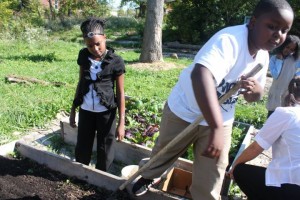
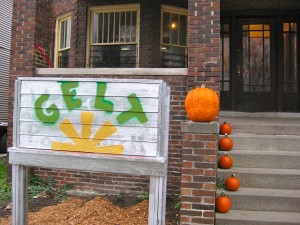
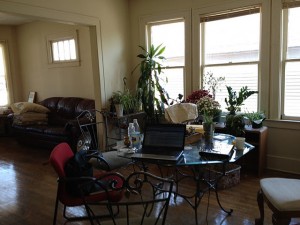
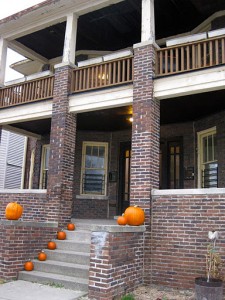
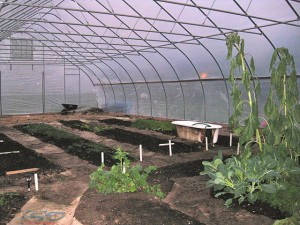
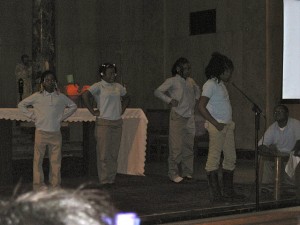
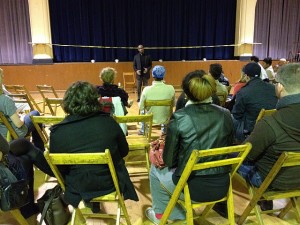
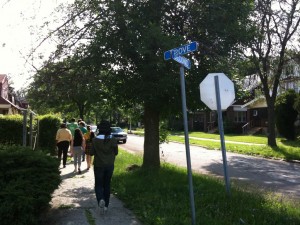
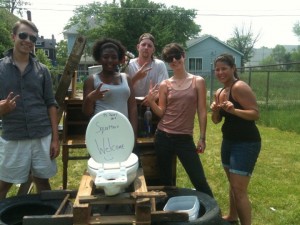


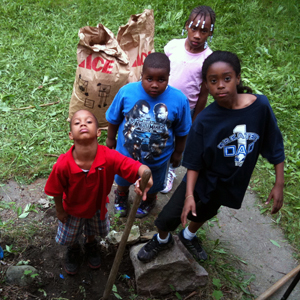 In 2 weeks, the Global Exchange Michigan team will embark on our second Green Economy Leadership Training (GELT) program. GELT is a 9 week training program that brings together residents from the community of Detroit & Highland Park together with youth from communities throughout Michigan and the U.S. for technical trainings in the green economy and community organizing.
In 2 weeks, the Global Exchange Michigan team will embark on our second Green Economy Leadership Training (GELT) program. GELT is a 9 week training program that brings together residents from the community of Detroit & Highland Park together with youth from communities throughout Michigan and the U.S. for technical trainings in the green economy and community organizing.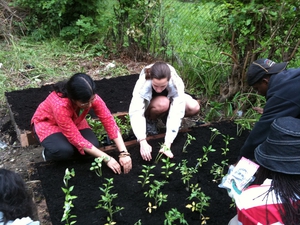 We worked with our long-time ally, Pastor David Bullock, of Greater St. Matthews Church in Highland Park to find vacant property to use as our training grounds. As a majority of Detroit’s once vibrant infrastructure is abandoned and in decay, the decision for where to start was mainly based on how we could most effectively deploy our energy and resources for a deep impact in the green economy. From there a localized training program, combined with direct application of what is taught, became the most logical move.
We worked with our long-time ally, Pastor David Bullock, of Greater St. Matthews Church in Highland Park to find vacant property to use as our training grounds. As a majority of Detroit’s once vibrant infrastructure is abandoned and in decay, the decision for where to start was mainly based on how we could most effectively deploy our energy and resources for a deep impact in the green economy. From there a localized training program, combined with direct application of what is taught, became the most logical move.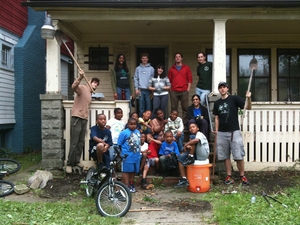 GELTers received permaculture design certificates, weatherized over 50 homes in Highland Park, built community gardens, and mentored the neighborhood kids. GELT was recognized as a cutting edge organizing strategy that was featured on the
GELTers received permaculture design certificates, weatherized over 50 homes in Highland Park, built community gardens, and mentored the neighborhood kids. GELT was recognized as a cutting edge organizing strategy that was featured on the